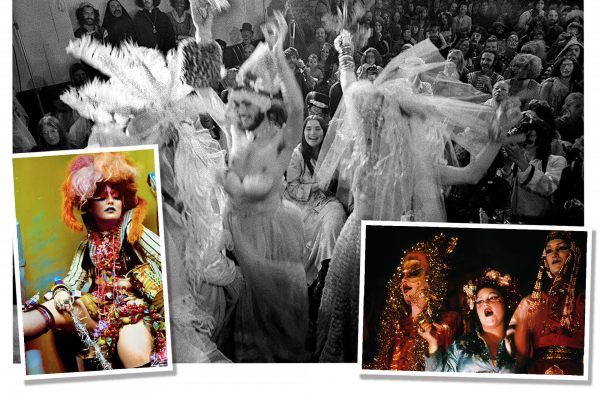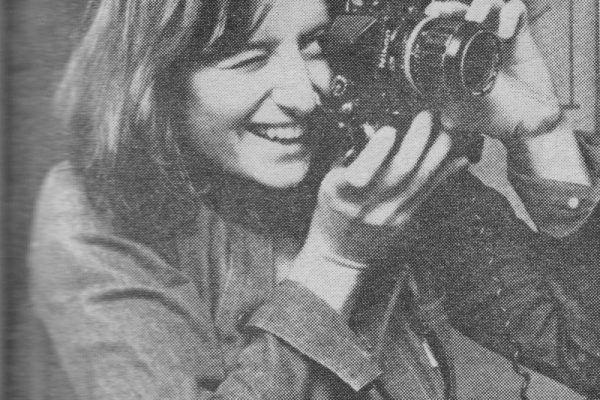Original Publication: Newsweek, November 20, 1972
In the $1,750,000,000-a-year record industry, baby millionaires are not as rare as pandas in Motown, but David Geffen is still an extraordinary figure. At 29, multimillionaire Geffen, manager of some of the biggest names in the rock business – Joni Mitchell, David Crosby, Stephen Stills, Neil Young, America, the Eagles, the Byrds – and new owner of his own record label, Asylum, is considered the fastest-rising young man in the mercurial pop-music world today.
What makes David run? Whatever it is, he propels himself so fast on his small frame that he seems attached to invisible roller skates, green eyes snapping, voice pleading, cajoling, denouncing or soothing whoever is on the other end of his 80 to 100 phone conversations a day. Operating out of a Sunset Boulevard office, in faded blue jeans, Geffen doesn’t look like one of the fifteen largest individual shareholders in Warner Communications, a man whose artists sold a whopping 12 million record albums last year.
Geffen, a nice Brooklyn boy, probably inherited a lot of his business sense from his mother. “My father was a perpetual unemployment case and my mother ran the family,” he told NEWSWEEK’s Peter Greenberg. “She owned a bra company called Chic Corsetry by Geffen – a real entrepreneur. She started as a seamstress during the Depression, the began her own business, then bought the building and became a landlord.” When he was 14, David’s mother cut off his allowance and told him he was old enough to go to work. He got a job in the Remington Rand mail room and spent his money at the movies – especially his favorites, the musicals.
Ambitious: After dropping out of four colleges in two years, Geffen found himself back in the mail room again – this time at the giant William Morris talent agency. He soon rose to be secretary to one of the Morris agents but got fired for being too aggressive. “I was too ambitious,” he says. “I was going out trying to sign up every act and his mother.” But after crying in the office of William Morris vice president Nat Lefkowitz, he got another chance. He soon became an agent and, in the next several years (including a brief period at another agency after he left Morris), Geffen signed such heavy names as Janis Joplin, the Doors, the Youngbloods and Peter, Paul and Mary. By the time he was 25, he had made his first million.
But his discovery of singer-songwriter Laura Nyro was the turning point of his career. He became her alter ego, quit everything to devote himself to making her a star, went broke doing it, and then met Ahmet Ertegun, president of Atlantic Records, who was so impressed with Geffen he gave him a check for $50,000. From then on it was uphill. Geffen took Laura Nyro, who had been jeered off the stage at the 1967 Monterey Pop Festival, and managed her into a super-star. He took four washed up musicians out of three failed bands and made them Crosby, Stills, Nash and Young, selling their act for $10,000 a night before anyone had heard them or seen them perform in public. And suddenly Joni Mitchell got hot.
Then Geffen made every hustler’s dream, the ultimate superdeal, a $4.5 million contract for Laura Nyro with Columbia Records, reportedly the largest contract ever negotiated. But in one of those double shuffles that moves to the beat of the rock world, Columbia, as Geffen tells it, reneged on the deal. Clive Davis, president of Columbia Records, signed Laura Nyro to another deal without Geffen, who was left holding a tearful letter from Nyro: “I love you, David. Tell me that we can go ahead [with the deal], be done with this nightmare and you and I be soulmates to each other.” Ironically, since leaving Geffen, Laura Nyro has written little and has not had another hit.
Meanwhile Geffen has found the vein of gold in rock; Asylum is one of the few “boutique” record labels to buck the big brands. “I don’t do this for bread anymore,” Geffen says. “The music is what counts. My job is to protect and love my artists so they can blossom.” That the formula obviously works is no surprise to Geffen. “I thought I’d be a success even back in the mail room at William Morris,” he says. “It was just inconceivable to me I couldn’t win it all.”
This article is typed from the original material. Please excuse any errors that have escaped final proofreading.



